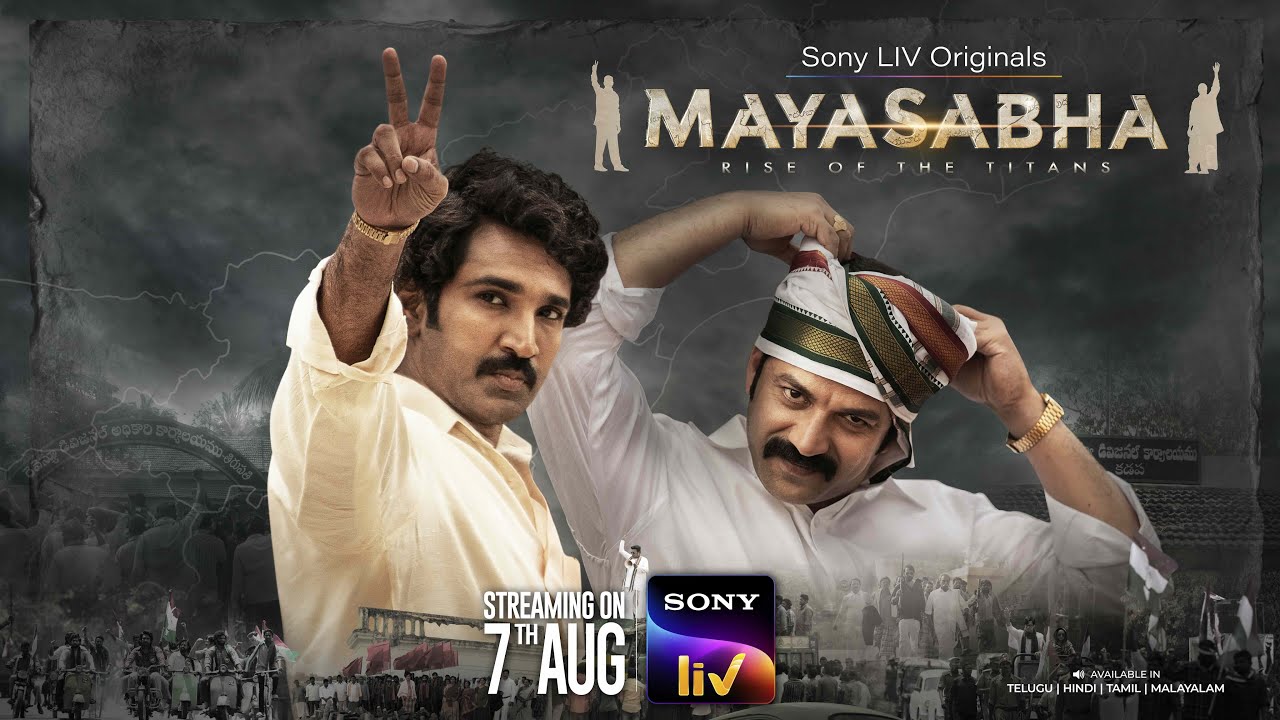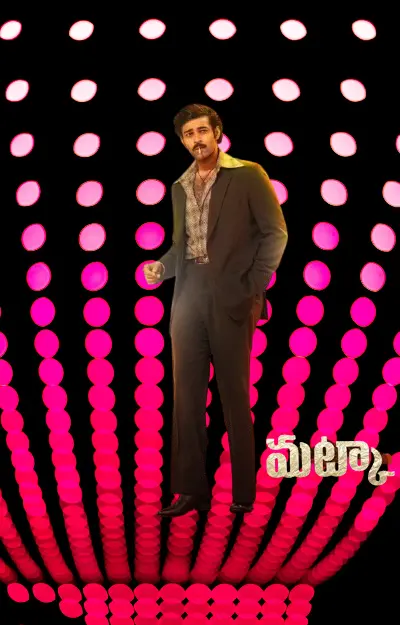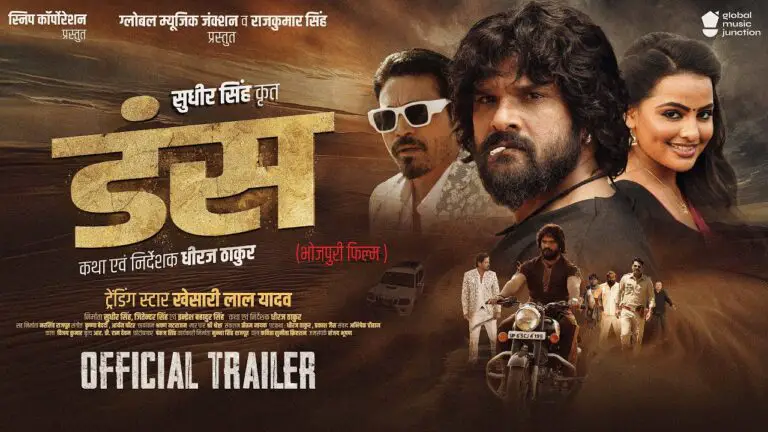Mayasabha Movie 2025 Bapamtv Review Details
Mayasabha (2025) – A Visual Masterpiece Rooted in Political Realism
Introduction
Mayasabha (2025) emerges as a standout in the realm of political dramas.
Streaming on Sony LIV, the series combines powerful storytelling with masterful cinematography.
Created by Deva Katta, the show recreates the volatile 1990s political scene of Andhra Pradesh.
It’s a gripping portrayal of friendship, betrayal, and ambition, brought to life with cinematic finesse.
Plot Overview
Mayasabha follows the story of two men, Kakarla Krishnama Naidu and MS Rami Reddy.
Once close friends, their paths diverge as political ambition turns them into rivals.
Set against real historical events, the show blends fiction with political fact.
Their journey reflects the rise of power and the emotional toll it takes.
Cinematography Techniques
Cinematographer Raju Bikram Thapa deserves applause for his grounded yet dynamic visuals.
He uses earthy color palettes to reflect the tone of each scene, creating a lived-in atmosphere.
Long tracking shots during political processions add intensity and movement.
Close-ups in private scenes heighten emotional stakes, making politics feel personal.
Lighting is used symbolically: shadows reflect secrecy and moral ambiguity.
Daylight scenes often symbolize clarity, honesty, or emotional resolution.
Visual Effects Breakdown
Though not dependent on heavy VFX, Mayasabha uses subtle enhancements wisely.
Crowd sequences, city skylines, and legislative environments are seamlessly extended.
Digital grading adds period authenticity without overdoing it.
The mood transitions smoothly across episodes with stylistic consistency.
Important backdrops are enhanced without distracting from live-action performances.
Scenes with rallies or violence appear organic due to restrained visual effects work.
Comparison with Industry Standards
Compared to recent political dramas, Mayasabha raises the bar visually.
It avoids soap-opera-like lighting and over-saturated colors common in regional OTT shows.
Mayasabha aligns closer to international productions in terms of visual depth.
Its treatment rivals shows like “The Crown” or “House of Cards” in tonal accuracy.
The attention to set detail, costume texture, and atmospheric build-up is superior.
Compared to similar Telugu dramas, this show feels more grounded and polished.
Performances Amplified by Visual Storytelling
Aadhi Pinisetty’s transformation is not just in dialogue, but in posture and lighting.
He is framed in wider shots early on, signaling innocence and openness.
As power consumes him, tighter framing isolates his character visually.
Chaitanya Rao Madadi’s arc is similarly supported with increasing visual intensity.
Supporting actors benefit from thoughtful blocking and set usage.
Each frame feels purposefully constructed to convey tension and alliance.
Editing and Flow
Milan Shrestha’s editing complements the cinematography.
Sharp cuts in tense moments contrast with slow fades in emotional scenes.
The narrative doesn’t lag due to brisk scene transitions and visual rhythm.
Montage sequences are well-paced and visually informative, not overwhelming.
Technical Awards Potential
Mayasabha is a strong contender for Best Cinematography and Production Design.
The meticulous recreation of the 1990s deserves special jury attention.
Its subtle use of VFX and strong visual tone position it favorably for OTT awards.
Given the rising value of technical categories, Mayasabha could sweep several.
Production Design and Visual Immersion
Set design showcases political offices, rural setups, and inner-city chaos with clarity.
The authenticity extends from wallpaper choices to microphone models.
Wardrobe styling captures regional identity and evolving character journeys.
Attention to regional detail elevates the credibility of political timelines.
Supporting Visual Themes
Visual metaphors abound—ladders, doors, and windows often symbolize transition or entrapment.
Use of mirrors hints at duality, especially in betrayal-heavy sequences.
Rural landscapes are used to contrast urban corruption with political purity.
Fire and water elements are subtly woven in climactic episodes for symbolic impact.
Overall Screen Impact
Mayasabha leaves a strong visual impression.
Every episode is shot like a standalone political short film.
The visuals don’t just support the narrative—they actively elevate it.
This is Telugu political cinema at its most ambitious and technically sound.
Star Rating Table
| Aspect | Rating (out of 5) |
|---|---|
| Story & Screenplay | 4.5 |
| Cinematography | 5.0 |
| Visual Effects | 4.5 |
| Production Design | 4.5 |
| Editing | 4.0 |
| Overall Visual Experience | 4.5 |
FAQs
Question 1
How realistic is the cinematography in Mayasabha?
Answer 1
The cinematography captures the realism of 1990s political India through color grading, framing, and lighting techniques that reflect the emotional tone and historical era.
Question 2
Does Mayasabha use CGI or heavy VFX?
Answer 2
Visual effects are minimal and used only to enhance crowds and environments subtly, allowing the grounded realism to shine.
Question 3
Can Mayasabha win technical awards?
Answer 3
Yes, it stands a good chance in categories like Best Cinematography, Production Design, and possibly Editing or Art Direction.
Conclusion
Mayasabha (2025) is a landmark in Telugu OTT production for its cinematic quality.
The technical finesse, especially in cinematography and production, lifts the series beyond standard drama fare.
Deva Katta and his team prove that regional content can match global standards in visual storytelling.
It’s not just a political tale—it’s a visual experience crafted with precision and passion.
Note: Star ratings are based on early impressions and are subject to change.






